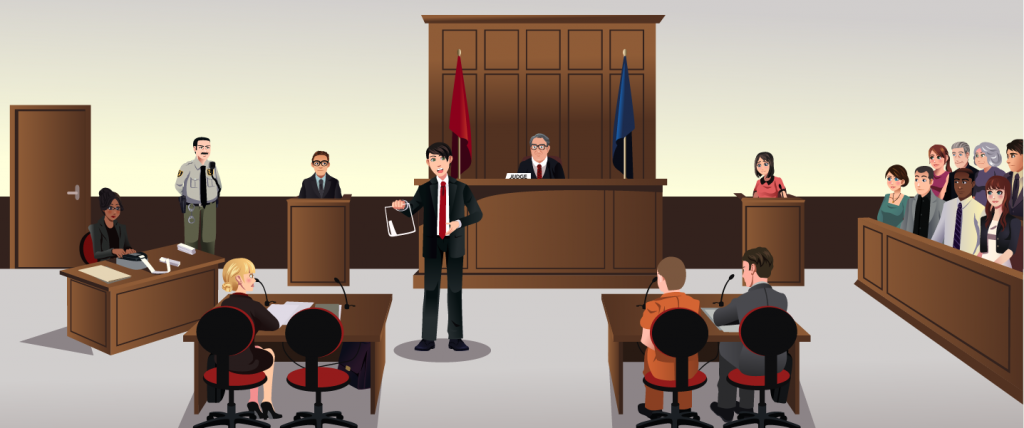India: Quashing Of Criminal Complaints Having A Civil Nature: What The Supreme Court Held
India: Quashing Of Criminal Complaints Having A Civil Nature: What The Supreme Court Held
Share
Recently, a Division Bench of the Supreme Court comprising Justice L. Nageswara Rao and Justice MR Shah in Sau. Kamal Shivaji Pokarnekar v. The State of Maharashtra1 held that crook court cases couldn’t be defeated simply because the allegations seemed civilianIn this example, the Appellant filed a grievance in 2008, accusing the Respondents of forgery and preparing fake files. The complaint was sent for research, and the police submitted a file declaring that the problem seemed civil. However, the Trial Court directed the issuance of the process to the Respondents.

The High Court of Bombay set apart the manner issued through the Trial Court according to its powers beneath Section 482 of the Code of Criminal Procedure, 1973 (“CrPC”) on the floor; the dispute changed into a civil nature. Criminal proceedings in opposition to the Respondents might abuse the system of regulation.
Section 482 CrPC is the inherent energy of the High Court with admiration to criminal court cases. The High Court can, among other things, quash crook complaints to save you the abuse of process of the court and comfortable the ends of justice below this provision.
What the Court held
The Supreme Court reiterated the settled role of law that the Magistrate has to adopt now, not any steps to decide whether the substances on record would lead to a conviction or no longer on the level of taking recognition of offense and issuing a summons. The popular that the Court prescribes for quashing criminal court cases is if, on perusal of the grievance, the courtroom can come to an effective determination that the offense alleged has been made out. The courtroom has to quash the same no longer. However, in prescribing such popular, the courtroom also attaches a caveat that offenses must be made from the criticism on a prima facie basis. The identical has to entail any meticulous analysis of the case no longer.
The Supreme Court emphasized the ideas in its previous decisions, specifically, State of Karnataka v. M. Devendrappa2 and Indian Oil Corporation v. NEPC India Ltd. & Ors. Three held that quashing of crook complaints is known for only while the charge no longer divulges any offense or the grievance is frivolous, vexatious, or oppressive.
The Supreme Court similarly clarified that defenses available throughout an ordeal and facts/components whose status quo for the trial duration may also lead to acquittal couldn’t form the premise of defeating a criminal grievance.
The Division Bench also made the critical statement that crook proceedings can’t be quashed handiest because the allegations made therein seem civil if the alleged offense substances are prima facie made out inside the complaint.
Based on the above issues, the High Court’s judgment was set aside by the Supreme Court.
Analysis and the manner ahead
A developing tendency in commercial enterprise circles to transform, in simple terms, civil disputes into crook cases have been located for a few years. Four This is a consequence of a general effect that civil regulation treatments are time-consuming and no longer accurately guard the rights and pursuits of residents. Likewise, if a person is entangled in a crook case, the chance of coming near the dispute’s settlement increases. Efforts by litigants to settle civil disputes and claims, which no longer contain any crook offense, by using stress via crook prosecution have been severely criticized and discouraged by courts. Five Courts have, with no trouble, used their power to defeat such vexatious crook complaints beneath Section 482 CrPC. The Supreme Court has held that a crook grievance must be routed. Simultaneously, the problem is primarily civil and has been given a cloak of a crook offense because the continuation of such complaints will amount to an abuse of procedure of the Court.6
In the above context, it turns vital to comprehend that frequently valid grievances of litigants may be unnoticed by using courts eager to quash criminal lawsuits having specific characteristics of civil nature from time to time, even without attributing any reasons for the identical.7 This judgment of the Supreme Court tries to emphasize the rights of such legitimate litigants to pursue crook remedies while balancing it in opposition to the right of people to be loose from frivolous criminal lawsuits.
The judgment serves to restrain the court’s ability to set aside criminal complaints entirely because the allegations seem civil. For this reason, a court docket can quash crook court cases most effectively about the willpower that the problem is polite and has been given a cloak of a crook offense.
Therefore, this judgment, in a manner, raises the edge for quashing criminal lawsuits and ensures that a blanket quashing of complaints no longer take area. While the technique is laudable, it remains visible as to how this judgment is used and examined to task petitions filed before High Courts for searching for quashing of criminal complaints, even where the dispute among the events has a civil bearing.



















